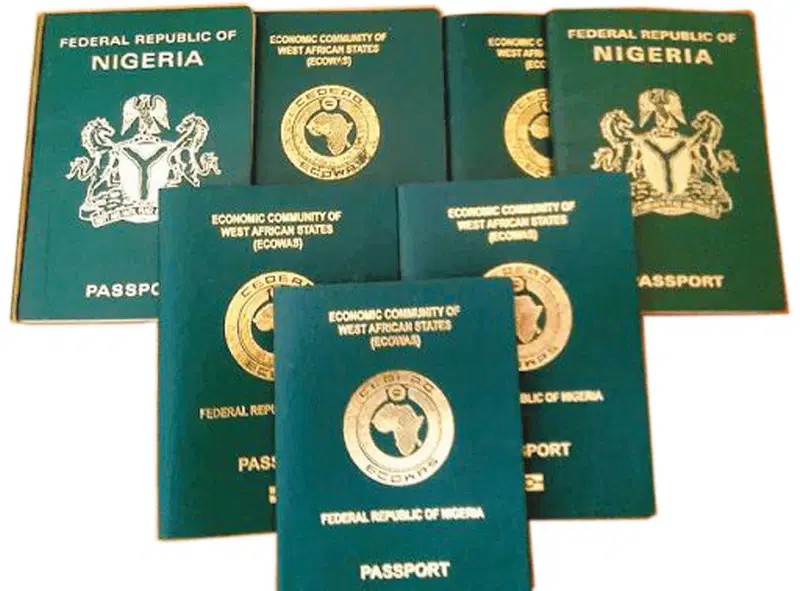No fewer than 34,289 Nigerians were granted U.S. citizenship through naturalisation between 2020 and 2022, data from the U.S. Department of Homeland Security has revealed.
According to the latest Naturalisations Annual Flow Report, Nigeria ranked 15th among the top 20 countries of birth for naturalised citizens within the three-year period, making it the highest-ranking African nation on the list.
The report, compiled by the Office of Homeland Security Statistics, draws data from Form N-400 applications submitted by prospective citizens and various U.S. Citizenship and Immigration Services (USCIS) systems, including electronic case files and the Central Index System.
A breakdown of the figures shows that 8,930 Nigerians became U.S. citizens in 2020, representing 1.4 per cent of the 628,258 people naturalised that year.
The number rose to 10,921 in 2021 — a 22.3 per cent increase — as USCIS cleared its pandemic-induced backlog. By 2022, the figure surged by another 32 per cent to a record-high 14,438, the largest annual total ever recorded for Nigerian applicants.
The three-year total reflects a 58.8 per cent growth in naturalisation among Nigerians, with the country accounting for three per cent of all 248,553 Africans naturalised during the period.
Regionally, Nigeria and the Democratic Republic of Congo were the only African nations in the global top-30 list, with Nigeria leading the continent.
The spike in African naturalisations overall was notable, with the continent posting a 40 per cent jump from 2021 to 2022 — the fastest growth rate among all regions globally.
On a global scale, Mexico led with 326,237 new citizens, followed by India (171,114), the Philippines (135,313), Cuba (126,203), the Dominican Republic (81,303), Vietnam (80,177), China (82,376), Jamaica (57,145), El Salvador (52,399), and Colombia (48,396).
These 10 countries collectively accounted for nearly half of the 2.4 million naturalisations recorded over the three years.
While the U.S. naturalisation process is governed by the Immigration and Nationality Act of 1952, a major shift occurred following the 1965 amendment to the Act, which dismantled restrictive national-origins quotas. This reform opened the door for more immigrants from Asia and Africa.
Applicants must meet several criteria, including at least five years of lawful permanent residency (or three years if married to a U.S. citizen), continuous residence, and demonstrated proficiency in English and U.S. civics.
Background checks and interviews are also mandatory before attending an oath ceremony administered by a judge or designated official.
Naturalised U.S. citizens enjoy nearly all the same rights and responsibilities as citizens by birth, including voting rights.
Reacting to the data, immigration expert and citizenship investment advocate, Mr. Olofin, urged Nigerians to explore legitimate pathways to foreign citizenship, including naturalisation and investment options. He noted that such moves offer significant opportunities for global mobility and economic advancement.
“Nigerians have demonstrated resilience and adaptability in foreign environments. The increasing naturalisation figures in the U.S. highlight the potential benefits of structured migration policies and long-term planning,” Olofin stated.
Do you want to share a story with us? Do you want to advertise with us? Do you need publicity for a product, service, or event? Contact us on WhatsApp +2348183319097 Email: platformtimes@gmail.com
We are committed to impactful investigative journalism for human interest and social justice. Your donation will help us tell more stories. Kindly donate any amount HERE




